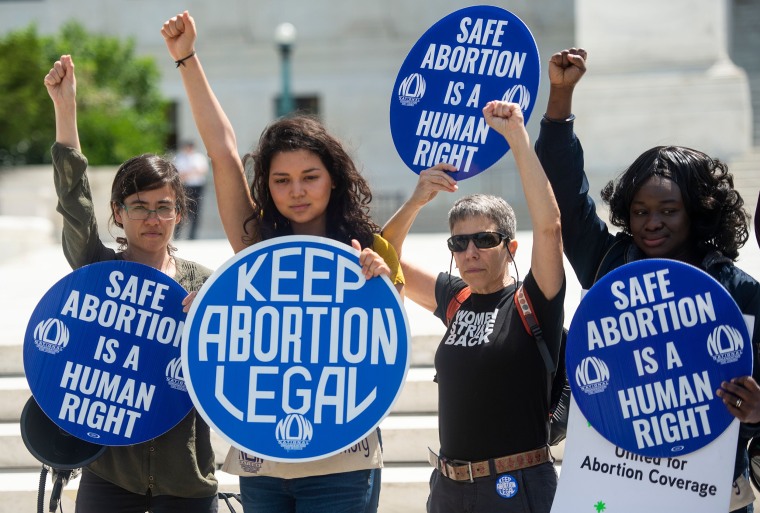A federal judge Wednesday blocked Ohio’s so-called heartbeat bill, which bans abortions after a fetal heartbeat is detected.
Saying the law places an unconstitutional “undue burden” on a woman’s right to have an abortion, U.S. District Judge Michael Barrett granted a preliminary injunction.
That means a law that was supposed to go into effect July 11, and which would have effectively halted most abortions in Ohio, is now on hold while the expected court challenges play out.
In his 12-page order, the Cincinnati-based Barrett noted that fetal heartbeats can occur as early as six weeks into pregnancy before many women even know they are pregnant.
“A woman with irregular periods likely will be denied the opportunity to seek an abortion altogether because she will not realize that she is pregnant in time to choose her fate,” Barrett wrote.
Under the law, doctors would face up to a year in prison for performing an abortion after detecting a heartbeat. And while the bill has an exception to save the life of the woman, there is no exception for rape or incest.
Supporters of the bill said Barrett’s ruling was not a surprise — and that the measure was designed to challenge the U.S. Supreme Court’s landmark 1973 Roe v. Wade decision which legalized abortion nationwide.
“The heartbeat bill has the potential to be the vehicle that overturns Roe v. Wade,” Michael Gonidakis, president of Ohio Right to Life, said in a statement after the ruling. “We know that this temporary restraining order is just a step in the process to finally seeing Roe reconsidered.”
The bill was signed into law earlier this year by Gov. Mike DeWine, who is a Republican, after it was passed by the state’s GOP-controlled Legislature.
“Gov. (Mike) DeWine has long believed that this issue would be decided by the United States Supreme Court,” DeWine’s spokesman Daniel Tierney said in an email to Reuters.
The American Civil Liberties Union of Ohio and Planned Parenthood sued to block the law on behalf of Ohio abortion providers such as Preterm-Cleveland.
"Ohioans deserve access to abortion that is safe, affordable, and without shame or judgment," Chrisse France, executive director of Preterm-Cleveland, said in a statement. "We will continue to fight for all women and people who can become pregnant to have access to abortion care, to make the decisions they believe are best for their lives, and to build communities where each of us can participate with dignity and respect."
Six other states have passed similar bills this year, but no “heartbeat bill” has gone into effect because they have been blocked by lawsuits.
In April, Alabama voted to outlaw almost all abortions in the state, including in cases of rape and incest. That law is also expected to be bottled up by legal challenges.

